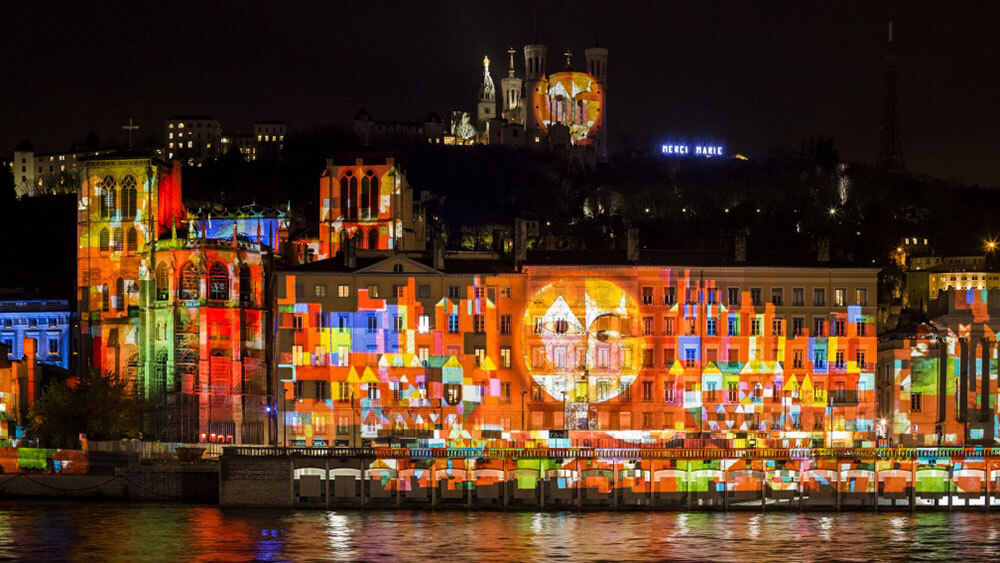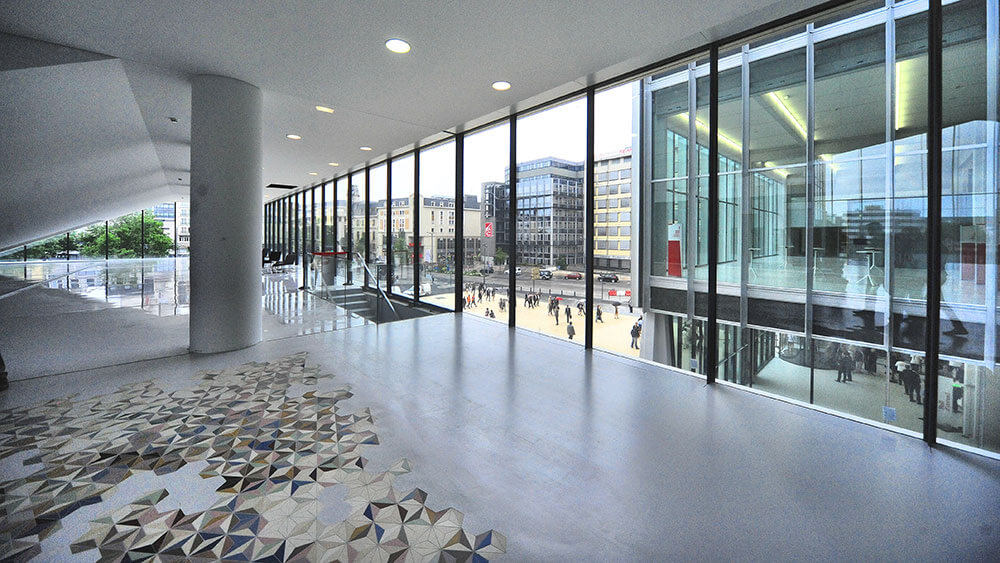
Lyon’s annual Festival of Lights, which uses state-of-the-art LED technology, consumes no more energy than a standard household. The festival is one of the reasons Lyons was named a 2019 European Capital of Smart Tourism. (Brice Robert/Tourism Lyon)
France has long been committed to protecting the planet with environment-friendly practices, as well as to combatting inequality and eradicating extreme poverty.
In 2015, the country became an early adopter of the United Nations’ 2030 Agenda for Sustainable Development, which set 17 Sustainable Development Goals (SDGs) to help the world reduce poverty, fight inequality, and protect the planet. These SDGs recently have led to the establishment of additional goals — to which France is equally attached — with respect to environmental protection, gender equality, universal medical coverage, tackling financial corruption, and good governance.
The French government, together with the private sector, has embarked on a journey to be green and sustainable. In 2016 for instance, the French Ministry of the Environment, Energy, and the Sea launched GreenTech, an incubator to assist 50 startups in developing sustainability services and applications. Competitiveness clusters include names such as Axelera in Auvergne-Rhône-Alpes, Pole Avenia in Nouvelle-Aquitaine, and Pôle Mer in Brittany or Provence-Alpes-Côte d’Azur, all making significant contributions to the “post-carbon” economy through, for instance, the development of eco-technologies.
Similarly, the National Biodiversity Strategy (NBS) for 2011-2020 is aimed at making France “a model biodiversity restoration country,” rolling out many initiatives nationally.
In this context, many French destinations stand out, and the whole meetings value and supply chain is involved in sustainable practices. Greater Nancy Conferences & Events, for instance, has been combining sustainable management and economic performance since 2014, and was recently certified ISO 20121, which is an international sustainable events standard. And Lyon has been named the 2019 European Capital of Smart Tourism, thanks to its innovative efforts in such areas as accessibility, sustainability, cultural heritage, and creativity. Lyon-Saint-Exupéry Airport, for example, is carbon neutral.
Further south, France’s neighbor Monaco has been inaugurated into the Global Destination Sustainability (GDS) Index. The Index recognizes the efforts of its members to improve their commitment to sustainability by listing them on an index to provide comparison with other destinations. Many businesses use this index to assess the sustainability of possible partners and it has quickly become an invaluable tool for the meetings and events industry. The push has long been supported by the work of Prince Albert II via his foundation, which has set out to promote sustainable development on a global scale.
All in all, France has emerged as a world leader in promoting sustainable practices: The Economist’s Sustainable Tourism Index, which ranks countries based on how they preserve their social, cultural, and environmental capital, recently put France in first place. Meanwhile, according to the Food Sustainability Index, France has maintained its position in first place for food sustainability for the third consecutive year.
This article was contributed by Boardroom. It was edited for use in Communique.

The Prouvé Congress Centre, in Nancy, France, is a latest generation High Environmental Quality facility. (Michel Lecercq)

